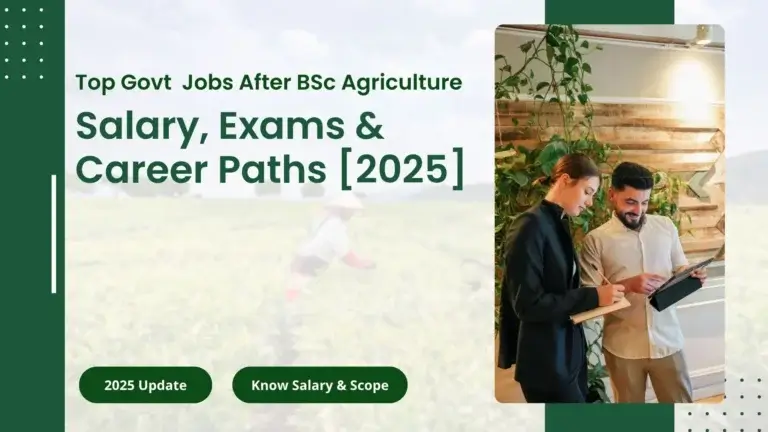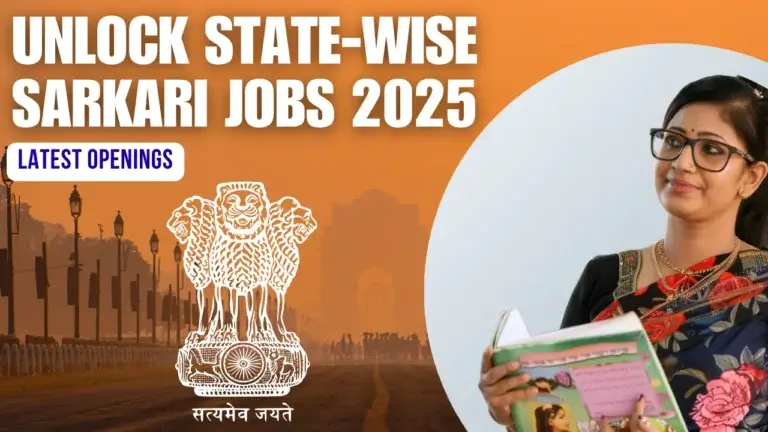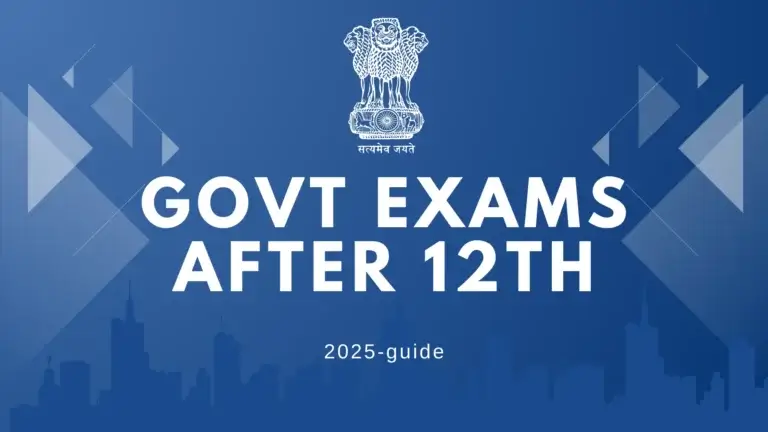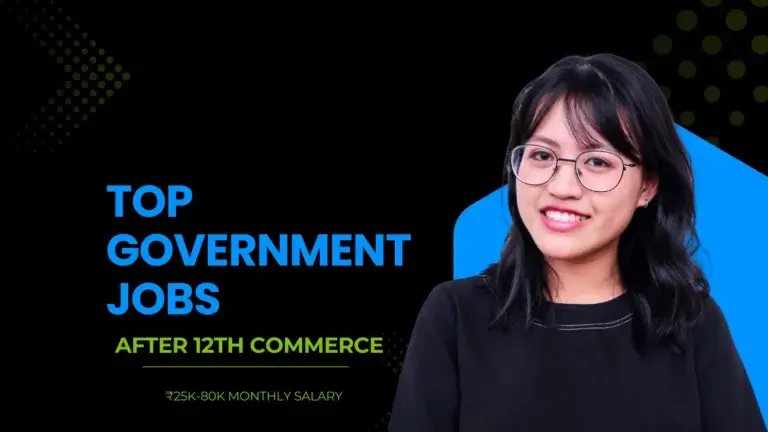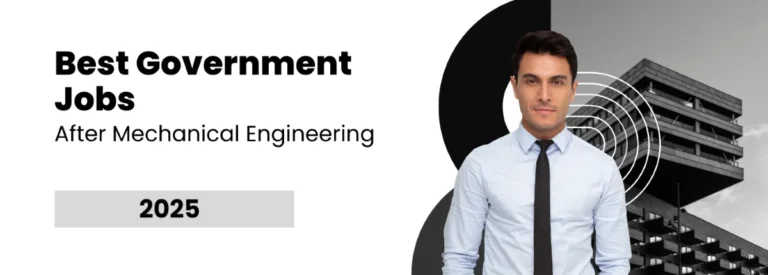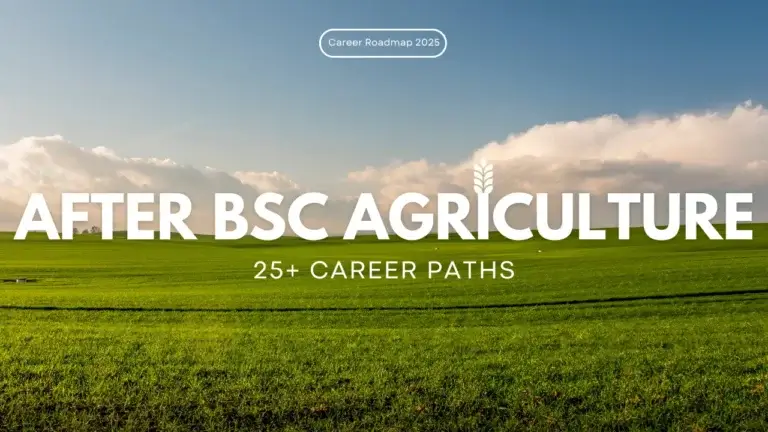🎓 Top Government Exams After BSc Maths: Your Complete Career Guide 2025
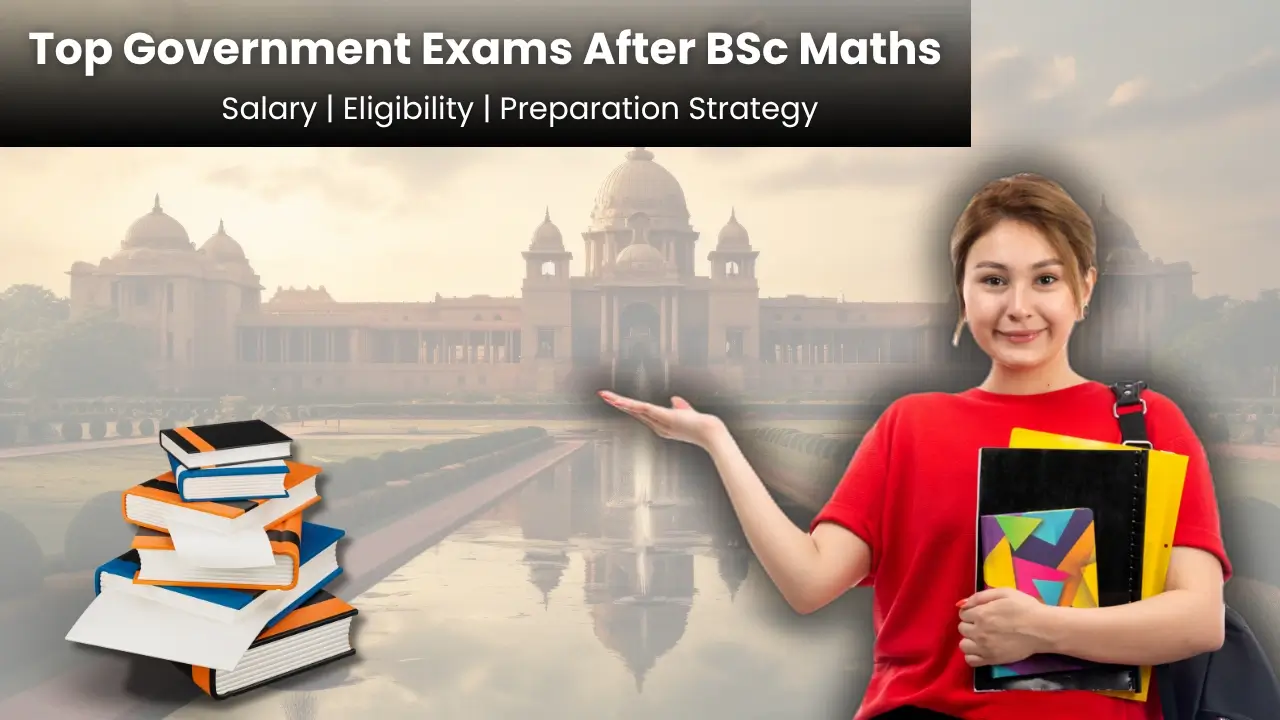
Last Updated: August 4, 2025 at 11:01 pm
🌟 Introduction
Completing your BSc in Mathematics opens doors to numerous prestigious government career opportunities. If you’re wondering about the top government exams after BSc Maths, you’re in the right place. Mathematics graduates possess strong analytical and problem-solving skills that are highly valued in government sectors.
The top government exams after BSc Maths span across various fields including banking, civil services, railways, defense, and statistical services. This comprehensive guide will help you understand the best government job opportunities available for mathematics graduates and how to prepare for them effectively.
Whether you’re interested in becoming a civil servant, working in public sector banks, or joining statistical organizations, there are numerous top government exams after BSc Maths that can lead to rewarding careers with job security and excellent benefits.
🎯 Why Choose Government Jobs After BSc Mathematics?
Government jobs offer several advantages for mathematics graduates:
- Job Security: Permanent positions with tenure protection
- Work-Life Balance: Fixed working hours and generous leave policies
- Competitive Salary: Regular pay scales with periodic revisions
- Career Growth: Clear promotion pathways and professional development
- Social Status: Respected positions in society
- Pension Benefits: Comprehensive retirement planning
🏆 Top Government Exams for BSc Mathematics Graduates
1. 📊 SSC Combined Graduate Level (CGL) Examination
The SSC CGL is one of the most popular competitive exams for mathematics graduates.
Eligibility: Bachelor’s degree from a recognized university Age Limit: 18-32 years (relaxation for reserved categories) Key Positions:
- Statistical Investigator Grade II
- Assistant Audit Officer
- Income Tax Inspector
- Customs Inspector
- Sub Inspector (Central Excise)
Exam Pattern:
- Tier 1: General Intelligence, Quantitative Aptitude, English, General Awareness
- Tier 2: Quantitative Abilities, English Language, Statistics (for specific posts)
- Tier 3: Descriptive Paper
- Tier 4: Computer Proficiency Test/Skill Test
Read Also: SSC CGL Preparation Strategy for Beginners 2025 [Complete Guide with Study Plan & Expert Tips]
2. 🏦 RBI Grade B Officer Examination
The Reserve Bank of India Grade B exam is highly prestigious for economics and mathematics graduates.
Eligibility: Bachelor’s degree with minimum 60% marks Age Limit: 21-30 years Positions Available:
- General Officer
- Economic Research Department Officer
- Statistics Department Officer
Salary Range: ₹35,000 – ₹62,000 per month (approx.)
3. 🏛️ UPSC Civil Services Examination (IAS/IPS/IFS)
The UPSC CSE is India’s premier civil service examination.
Eligibility: Bachelor’s degree from recognized university Age Limit: 21-32 years (general category) Optional Subject: Mathematics is available as an optional subject Services: IAS, IPS, IFS, and other Group A services
Preparation Strategy:
- Strong foundation in mathematics concepts
- Current affairs and general studies
- Essay writing skills
- Interview preparation
4. Banking Examinations
Several banking exams are suitable for mathematics graduates:
IBPS PO (Probationary Officer)
- Eligibility: Bachelor’s degree
- Age Limit: 20-30 years
- Salary: ₹23,700 – ₹42,020 per month
SBI PO
- Eligibility: Bachelor’s degree
- Age Limit: 21-30 years
- Salary: ₹27,620 – ₹54,960 per month
NABARD Grade A & B
- Eligibility: Bachelor’s degree with 60% marks
- Age Limit: 21-30 years
- Specialized roles: Rural development and agricultural finance
5. 🚂 Railway Recruitment Board (RRB) Examinations
Indian Railways offers various opportunities for mathematics graduates:
RRB NTPC (Non-Technical Popular Categories):
- Station Master
- Goods Guard
- Commercial Apprentice
- Traffic Apprentice
RRB JE (Junior Engineer):
- Suitable for those with additional technical qualifications
6. ⚔️ Defense Services Examinations
Combined Defense Services (CDS) Examination
- Eligibility: Bachelor’s degree
- Age Limit: 19-24 years
- Services: Indian Military Academy, Naval Academy, Air Force Academy
NDA (National Defence Academy)
- For unmarried graduates
- Age Limit: 19-22 years
7. Statistical Services Examinations
Perfect for mathematics graduates with interest in statistics:
Indian Statistical Service (ISS)
- Conducted by: UPSC
- Eligibility: Master’s degree in Statistics/Mathematics/Economics
- Age Limit: 21-30 years
Indian Economic Service (IES)
- Conducted by: UPSC
- Eligibility: Master’s degree in Economics/Statistics/Mathematics
- Age Limit: 21-30 years
8. 🏢 State Public Service Commissions
Each state conducts its own civil service examinations:
- State PCS: Administrative services at state level
- State PSC: Various departmental examinations
- Police Services: Sub-Inspector and higher positions
• Age: 21-32 years
• Mathematics Optional Available
• Age: 21-30 years
• 60% Minimum Marks Required
• Age: 18-32 years
• Multiple Department Options
• Age: 20-30 years
• Work-Life Balance
• Age: 18-33 years
• Pan-India Postings
• Age: 21-30 years
• Perfect for Math Graduates
💡 Subject-wise Advantages for BSc Mathematics Students
Quantitative Aptitude
Mathematics graduates have a natural advantage in:
- Number systems and algebra
- Geometry and mensuration
- Data interpretation
- Probability and statistics
- Trigonometry and calculus concepts
Logical Reasoning
Strong mathematical background helps in:
- Pattern recognition
- Analytical reasoning
- Critical thinking
- Problem-solving approaches
Optional Subject (UPSC)
Mathematics as optional subject offers:
- Scoring potential with proper preparation
- Objective-type questions in many topics
- Familiarity with mathematical concepts
- Logical approach to problem-solving
📚 Preparation Strategy for Government Exams
1. Create a Study Plan
- Assess exam patterns and syllabi
- Allocate time based on subject weightage
- Set realistic daily and weekly targets
- Include regular revision sessions
2. Strengthen Core Areas
- Mathematics: Focus on speed and accuracy
- English: Improve vocabulary and grammar
- General Knowledge: Stay updated with current affairs
- Reasoning: Practice different types of logical problems
3. Mock Tests and Previous Papers
- Solve previous year question papers
- Take regular mock tests
- Analyze performance and identify weak areas
- Improve time management skills
4. Current Affairs Preparation
- Read newspapers daily (The Hindu, Indian Express)
- Follow government websites and policy updates
- Use monthly current affairs magazines
- Join online current affairs platforms
💰 Salary and Career Prospects
| Exam | Starting Salary (₹) | Career Growth | Job Security |
| UPSC CSE | 56,100 – 2,25,000 | Excellent | Very High |
| RBI Grade B | 35,000 – 62,000 | Very Good | High |
| SSC CGL | 25,500 – 81,100 | Good | High |
| Banking PO | 23,700 – 54,960 | Good | High |
| Railway NTPC | 19,900 – 63,200 | Good | High |
💪 Tips for Effective Preparation
Time Management
- Create a balanced study schedule
- Prioritize subjects based on exam weightage
- Include breaks and recreational activities
- Maintain consistency in study hours
Resource Selection
- Choose quality study materials over quantity
- Refer to standard textbooks and guides
- Use online platforms for practice tests
- Join coaching institutes if necessary
Health and Motivation
- Maintain physical fitness through regular exercise
- Practice meditation or stress-relief techniques
- Stay motivated with positive affirmations
- Connect with fellow aspirants for support
⚠️ Common Mistakes to Avoid
- Procrastination: Start preparation early
- Ignoring Current Affairs: Stay updated regularly
- Overconfidence in Mathematics: Don’t neglect other subjects
- Lack of Mock Tests: Regular practice is essential
- Poor Time Management: Learn to solve questions quickly
- Neglecting Revision: Regular revision is crucial for retention
❓ Frequently Asked Questions (FAQs)
🎉 Conclusion
The journey to securing a government job after BSc Mathematics is challenging but highly rewarding. With numerous opportunities available across different sectors, mathematics graduates have excellent prospects in the government sector. The key to success lies in choosing the right exam based on your interests, preparing systematically, and staying consistent with your efforts.
Remember that government jobs offer not just career stability but also the opportunity to serve the nation and make a meaningful impact on society. Your mathematical background gives you a significant advantage in quantitative sections, so leverage this strength while working on other areas.
Ready to start your government career journey?
Visit GovtCareerHub.com for the latest exam notifications, study materials, and expert guidance. Subscribe to our newsletter for regular updates on government job opportunities and preparation tips. Your dream government job is just a well-planned preparation away!
Read Also:
- सरकारी नौकरी की तैयारी कैसे करें – बेस्ट टिप्स (2025) | Sarkari Naukari Ki Tyari Kaise Kare- Best Tips
- Top 7 AI Tools Transforming Govt Job Preparation in India
- SSC CGL Preparation on a Budget: Best Free Resources & Smart Study Hacks That Actually Work
- How to Crack Competitive Exams in the First Attempt: Proven Tips & Strategies for Success
- How to Prepare for Competitive Exams at Home: 3-Month Plan


